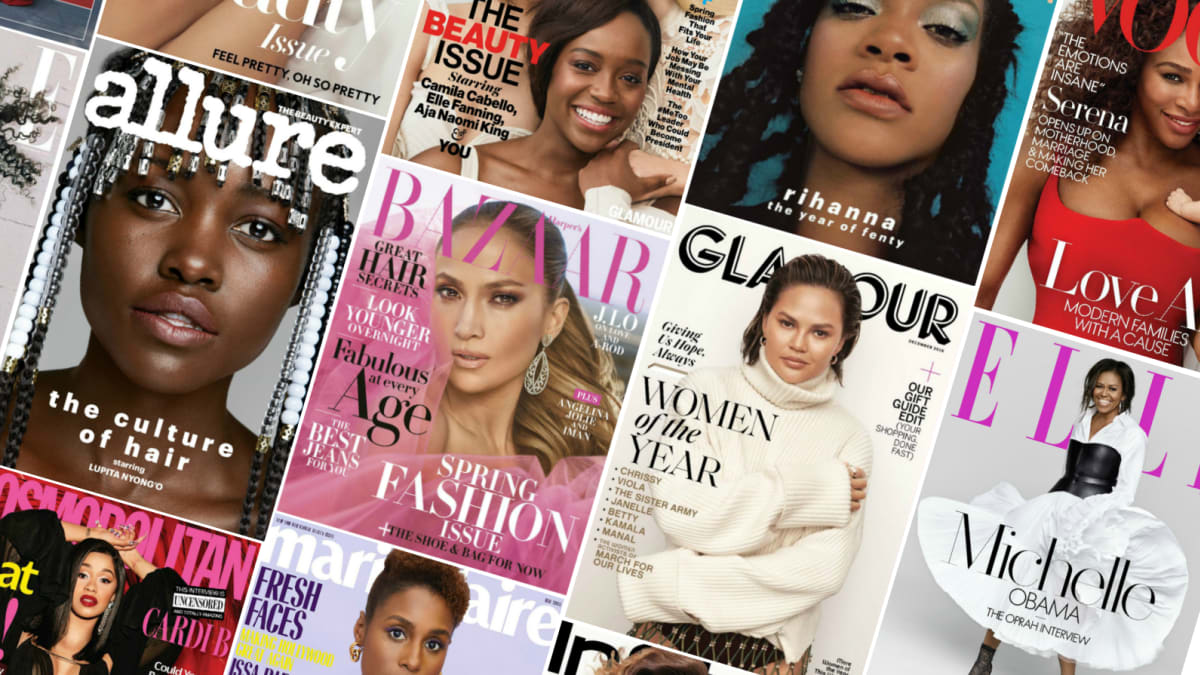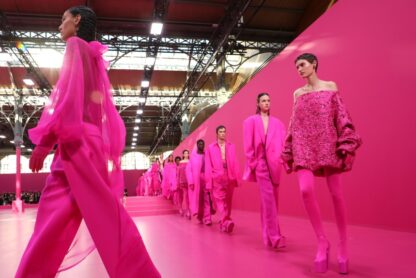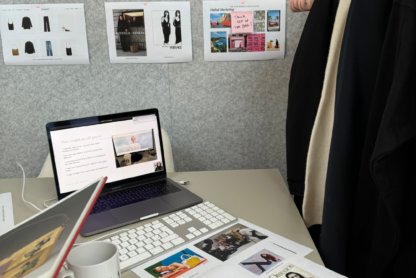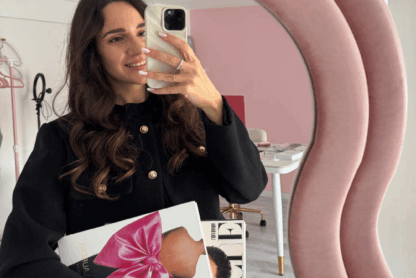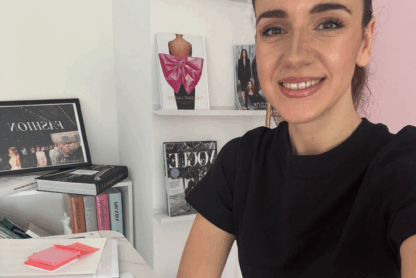Are you interested in a career in fashion writing but not sure what route to take? Fashion magazines are at the heart of the industry. Whether you dream of working for digital or print you have the critical choice of choosing to work freelance or in-house. It all comes down to personal preference and what career path you think would make you happier. We have all the information you could need, from the daily responsibilities to the work dynamic differences, to help you make an informed choice of what best suits you.
As a career option with many different opportunities and the freedom of choice. Remember you are not constrained to one choice or the other. You could work as an editor at Vogue full-time, while freelancing as a passion project on the side for the extra income.
So, what is a Fashion Editor?
Working directly at a specific fashion publication, an editor focuses only on the one magazine they are employed by as part of the editorial team. As employed by the magazine full-time, an Editor is often assigned to one topic from fashion to trends or lifestyle. A Fashion Editor also has more tasks other than producing articles. They are responsible for deciding what goes on the fashion pages of the magazine. From selecting this season’s staples to put on the product pages, to which articles to feature or what photo shoots to include. They are ultimately responsible for their whole sector. Whether this is digital content to choose from or organizing the layout of a shopping page in the physical magazine.
What is a Freelance Writer?
Unlike an Editor, a Freelance Writer is not employed by any fashion magazine full-time. As self-employed they are responsible for managing their own time, getting their own clients, and the amount of work they do. As a Freelance Writer, you contribute to many different magazines. This could be on a weekly/monthly basis or reaching out to new clients to create pieces as and when they need them. However, although it may seem that a freelancer’s job focuses solely on writing, it does include a lot of emailing, pitching, and self-motivation. You must enjoy the admin side of things too, as you will be constantly communicating with editors at magazines. Pitching ideas and finding your own clients is not for everyone.
Although freelance fashion writers must decide their own niche, they still have more freedom when writing articles than an editor. As they can explore new topics, or have several categories they tap into. It’s important to consider what you like to write about as well as if you prefer seeing a magazine come together or contributing to many. A day-to-day for a freelancer can often look like 70% admin work and 30% writing. Whereas the day of an editor could look like communicating with a team as they work on the page layout and writing some final articles.
Salary Differences
Salaries can vary between the two roles, it is not as though one simply gets paid more than the other. This can completely depend on experience level, amount of consistent clients, and the magazine company. For example freelance fashion sensation Suzy Menkes would earn more than the Fashion Editor at Marie Claire. But a Lifestyle Editor at Vogue might make more than a freshly graduated freelance writer with no reputation or clients yet. Freelance writing allows you to have no limit on what you can make each month. However, it does mean that each month can fluctuate in a good way or a bad way. Whereas an Editor is on a set wage and a stable income, knowing exactly what the paycheck will show each month. This is not to say that a freelance writer is an unstable income, however, you should be aware that each month may not look the same. One month you could make 6 figures and the next 4. It is actually quite common that freelancing can pay more than a permanent staff role at a magazine.
It’s important to understand why the two roles are paid so differently. An Editor is on a set wage each month as they are employed directly by the magazine to get the job done within the role title, from producing content to working as a team. Whereas a Freelance Writer works alone to sell their ideas and articles to a variety of magazines. Therefore they charge the magazine themselves per hour, per word, or per article. This means their income comes from charging many different magazines. It’s important to ask yourself, do you think you would work best at getting your own clients or work best in a team?
Working Environment
Another crucial difference between the two roles to consider is your working environment. A Freelance Writer will work remotely from anywhere; home, their local coffee shop, or even sometimes visit offices if they are regular contributors. While a Fashion Editor will work in a team in an office environment every day. It’s important to consider if you enjoy working independently while communicating with others via email, calls, and meetings. Or if you prefer to communicate and chat with people daily, making decisions as a team. It’s also important to think about where you currently live and where you want to live. The majority of fashion magazines; digital or print are based in the fashion capitals like London or New York. So you need to ask yourself if this is somewhere you live or would like to live. If maybe you have no desire to move to London, you may consider freelancing to achieve a successful writing career.
An additional point to consider within your working environment is being your own boss vs having a boss. Freelance can often feel daunting. You have to motivate yourself, find your own work, manage your own time as well as handle taxes and the adult stuff. Whilst working in-house at a publication you report to a boss/editor-in-chief.
The skills required of you
The two roles require a very similar skillset in terms of editorial writing. Writers freelance or in-house need to understand the tone of the publication and writing style, consider SEO for digital content, generate new ideas, and have excellent knowledge of the industry. A degree is also considered necessary for the role. However, there are some skills specific to each role. Freelancers need to master networking, pitching, and communicating as well as researching the tone of each publication they work with. Whereas an Editor will need to work collaboratively, edit others’ articles, consider the layout of the magazine or digital space, and understand and immerse themselves within the magazine.
There are a lot of factors to consider from the role itself, the location, the work environment, and salary. But ultimately considering these things collectively, what would make you happy? It’s important to remember that whatever you decide right now, you are not ultimately stuck with for the rest of your life. You can change your mind and follow your heart.
If you are at the begging of your career you can add Fashion Writer to your CV today, even if you are still a student. Start your own blog, write stories for another magazine, or intern at a fashion magazine! Try both now while you are in a position to explore your options. As a career option with many different opportunities, you are not constrained to one choice or the other. You could work as an editor at Vogue full-time while freelancing as a passion project on the side for extra income.
If you want to make fashion writing your career, join the waitlist for the new course The fashion writing accelerator. Enrollment is opening again soon this month!




